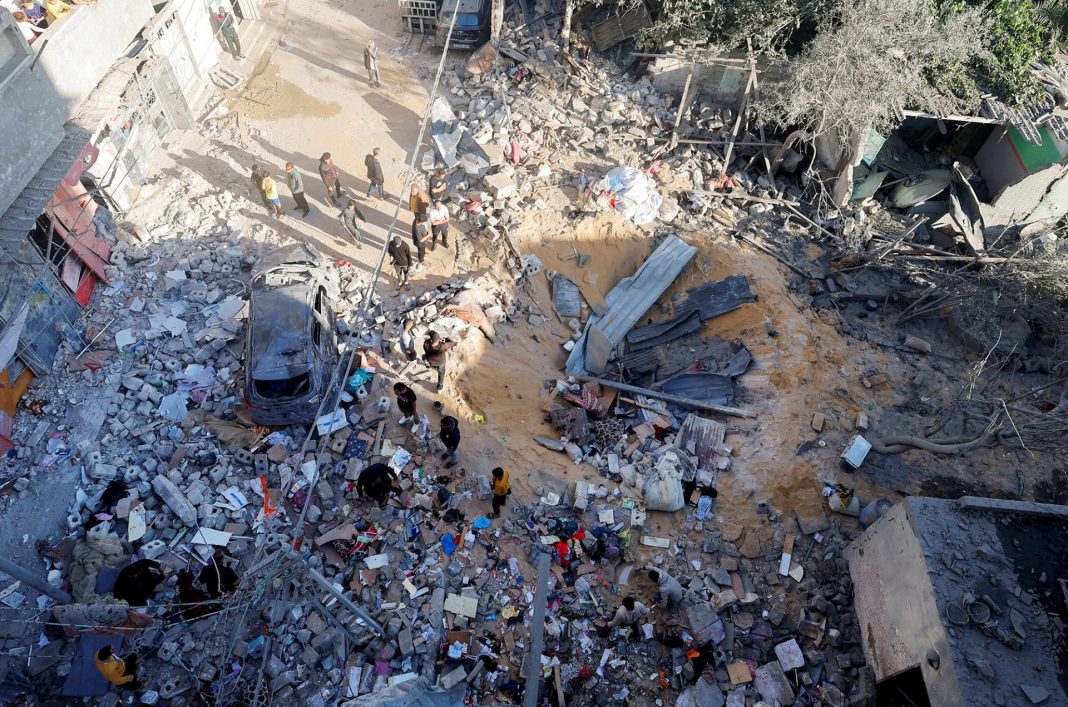The shipment, which was held back last week, includes 1,800 bombs weighing 2,000 pounds and 1,700 bombs weighing 500 pounds.
“We are especially focused on the end-use of the 2,000-pound bombs and the impact they could have in dense urban settings as we have seen in other parts of Gaza,” the official said.
Israeli leaders have warned for weeks that an invasion of the southern Gaza city of Rafah will occur at some point in the future, even as the US and others have publicly stated that such a ground operation should not occur. The Joe Biden administration has called for a comprehensive plan to protect more than a million civilians sheltering in Rafah and avoid an expansion of the humanitarian catastrophe unfolding in the coastal enclave.
On Monday, Israel carried out what the US described as a “limited” operation in Rafah, taking over the border crossing with Egypt that is a vital lifeline for humanitarian aid.
“This appears to be a limited operation, but of course, much of that depends on what comes next,” stated State Department spokesman Matt Miller on Tuesday.
“They have said, I think quite clearly, it’s no secret that they want to conduct a major military operation there. We have made clear that we oppose such an operation.”
The US and Israel have been in regular communication about the Israeli military’s plans to conduct a major ground operation in the southern part of Gaza, but the administration has been clear that the plans are far from ready.
“We’ve seen kind of the concepts, but nothing detailed at this point,” Pentagon press secretary Maj. Gen. Pat Ryder said at a press briefing Monday.
Still, Prime Minister Benjamin Netanyahu has repeatedly stated that a ground operation in Rafah is necessary to keep the pressure on Hamas to release the remaining hostages and to achieve victory. As Israel’s leadership came closer to a final decision, the US began to review proposed transfers of particular weapons to Israel that might be used in Rafah, the US official added. The process of carrying out the review began in April and led to the pause in shipments of the two types of bombs.
“We have not made a final determination on how to proceed with this shipment,” the official continued.
Among the largest conventional weapons in the US arsenal, 2,000 pound bombs can have a devastating impact, especially on a densely populated area such as Gaza. The heavy munitions leave a massive crater and can send deadly shrapnel hundreds of feet from the impact site.
The US is also reviewing the potential sale or transfer of other munitions, including Joint Direct Attack Munition (JDAM) kits to Israel, the official said. But these transfers are not imminent and would occur in the future, the official stated.
The Pentagon would not comment when asked about pauses in shipments, but insisted that none of this changes the US’s commitment to the defense of Israel.
“Our commitment to Israel’s security remains ironclad,” Pentagon deputy press secretary Sabrina Singh said at a briefing Tuesday, adding, “You’ve seen that since October 7. You’ve seen us surge security assistance to Israel. So while I’m not going to comment any further I can tell you that our commitments to Israel’s security remains the same.”
